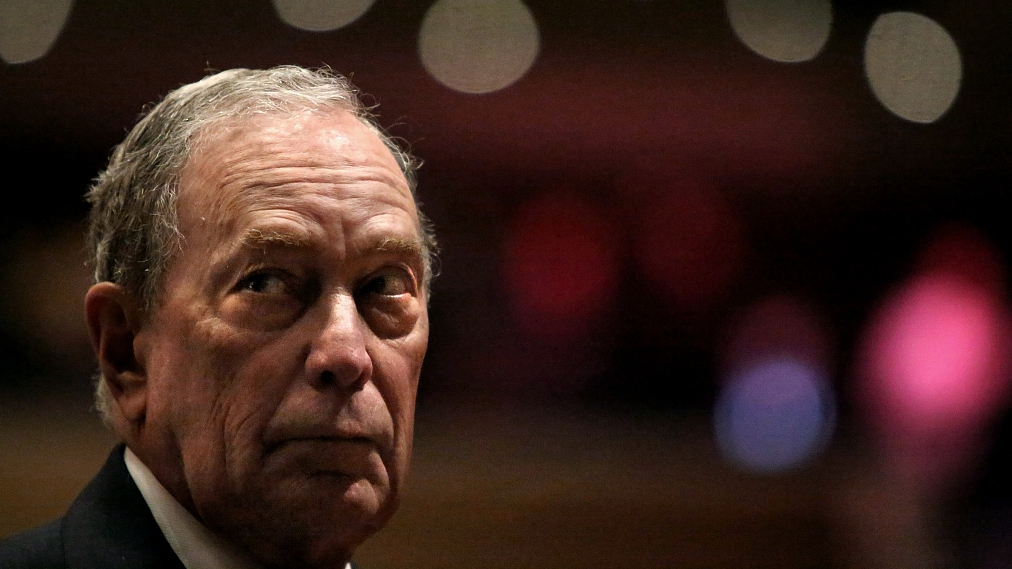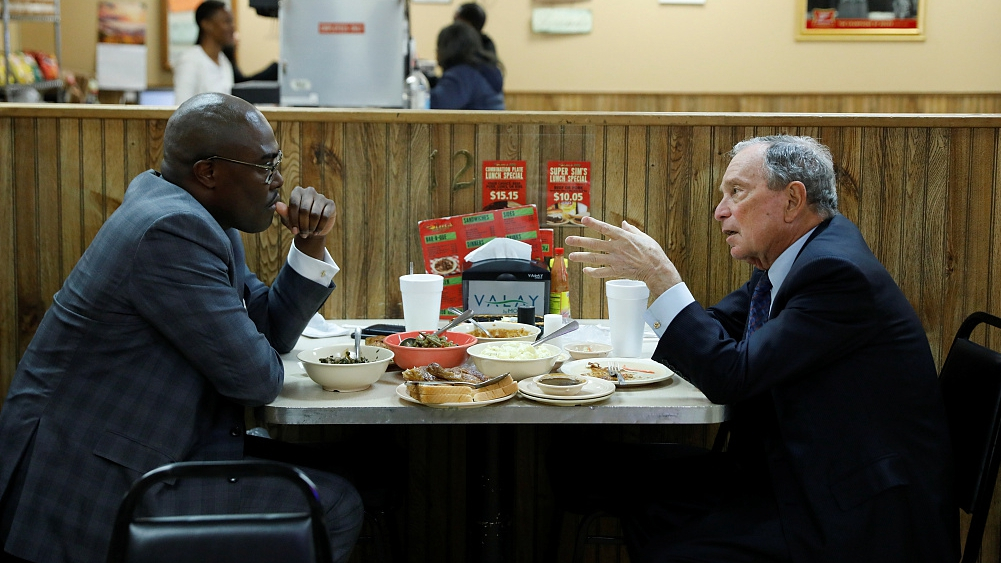Michael Bloomberg has entered the race for the U.S. presidency, announcing on Sunday that he would compete with 17 other hopefuls for the 2020 Democratic nomination.
The move – reversing a decision in March not to run – is a reflection of the media mogul's appraisal of the field of Democratic hopefuls. Bloomberg doesn't think the likes of Joe Biden, Elizabeth Warren, Bernie Sanders and Pete Buttigieg have what it takes to make Donald Trump a one-term president, despite his low favorability ratings and potential impeachment.
But can the 77-year-old beat the other contenders to the Democratic nomination?
Moderation
The eighth-richest man in the world will target moderates (as well as independents and crossover Republicans in states that allow non-Democrats to vote) and looks set to make an anti-Trump message central to his campaign. "If he (Trump) wins another term in office," Bloomberg said on Sunday, "we may never recover from the damage."
He is unlikely to flip many supporters from progressive candidates Warren and Sanders, who make up a combined 40 percent of the vote share according to the latest RealClearPolitics average. Both have made wealth inequality central to their campaigns and, as Sanders noted in a pointed tweet, the billionaire class isn't popular with the Democrat progressive wing.

Michael Bloomberg prepares to speak at the Christian Cultural Center in Brooklyn, New York City, November 17, 2019. /VCG Photo
Michael Bloomberg prepares to speak at the Christian Cultural Center in Brooklyn, New York City, November 17, 2019. /VCG Photo
That leaves a pool of around 60 percent, of which Bloomberg currently has 2.3 percent, and pits him against Biden and Buttigieg as well as senators Amy Klobuchar and Kamala Harris.
"We're about to see how much money can buy," CNN polling analyst Harry Enten tweeted on Sunday, "cause prior to him getting in Bloomberg's polling is not good to put it mildly"
Biden is currently holding on to the lead with an average of 29 percent. Bloomberg will join a collection of moderate lane candidates waiting to see if the vice-president's faltering performances on the campaign trail eventually lead to a drop in the polls.
Strategy
The former New York City mayor's late entry into the race means he is skipping the first four states with nominating contests, and will focus on Super Tuesday – a 15-state vote on March 3.
That means abandoning Iowa and New Hampshire, the states Buttigieg and Klobuchar are pinning their hopes on to give their campaigns momentum, and South Carolina, where Biden is strong and Harris is fighting hard.

While the arithmetic of a Super Tuesday strategy may add up for Bloomberg – the Super Tuesday states are delegate-heavy, and less well-resourced candidates can't afford to pay them much attention at this stage – the political and media hit from not making a serious play in the early states could be severe.
The first nominating states, Iowa and New Hampshire, receive disproportionate media attention – and that has benefited Buttigieg, who now leads in some statewide polls.
An upside to the strategy is that the field is likely to be much smaller by March 3, giving Bloomberg more chance of breaking through with his financial advantage.
History
Bloomberg is one of the world's richest people and has a political record as a three-term mayor of New York City. Both come with electoral positives and negatives.
His estimated wealth of 54.1 billion U.S. dollars gives him a big edge, but also turns off a chunk of Democratic voters and risks him being painted as out of touch.
The video accompanying his candidacy acknowledged an element of that weakness, playing up his middle-class upbringing in Massachusetts and noting that he build his company, the eponymous financial news service, from "a single room to a global entity."

Michael Bloomberg eats lunch with Little Rock Mayor Frank Scott, Jr. after adding his name to the Democratic primary ballot in Arkansas, November 12, 2019. /VCG Photo
Michael Bloomberg eats lunch with Little Rock Mayor Frank Scott, Jr. after adding his name to the Democratic primary ballot in Arkansas, November 12, 2019. /VCG Photo
Bloomberg's political experience gives him a record which will look mixed to many Democrats.
While his stances on public health, gun rights and climate change are in tune with the party, his previous support for "stop and frisk" is expected to be particularly damaging to his prospects of winning support from African American voters.
He has also switched party several times, initially winning the New York City mayoralty as a Republican, strongly defends Wall Street, is fiscally conservative and opposes both Medicare-for-all and the legalization of marijuana – none of which are easy fits with Democratic voters.
Money
Bloomberg's trump card is his enormous financial clout. He will self-fund his campaign, ruling him out of contention for the Democratic debates which require candidates to receive individual contributions but giving him a huge advantage over other candidates in advertising.
High-spending has been central to his election successes: In the 2009 mayoral race, he outspent his opponent 14 to one, according to the New York Times, but won by just five points. The 102-million-U.S.-dollar total spend in 2009 equated to 172 U.S. dollars per vote.
"What makes the Bloomberg campaign budget so amazing is that there is no budget," Fernand Amandi, a Democratic consultant pollster, told Politico. "Everything is attainable....We haven't seen a presidential campaign like one that Michael Bloomberg could run."
He has already booked TV spots worth an estimated 34 billion U.S. dollars for advertisements, according to Politico, with ads airing from Monday.
Overwhelming financial muscle is Bloomberg's best shot, but even in the era of political unpredictability – and in a race where there is no standout contender – his path to the White House looks extremely narrow.